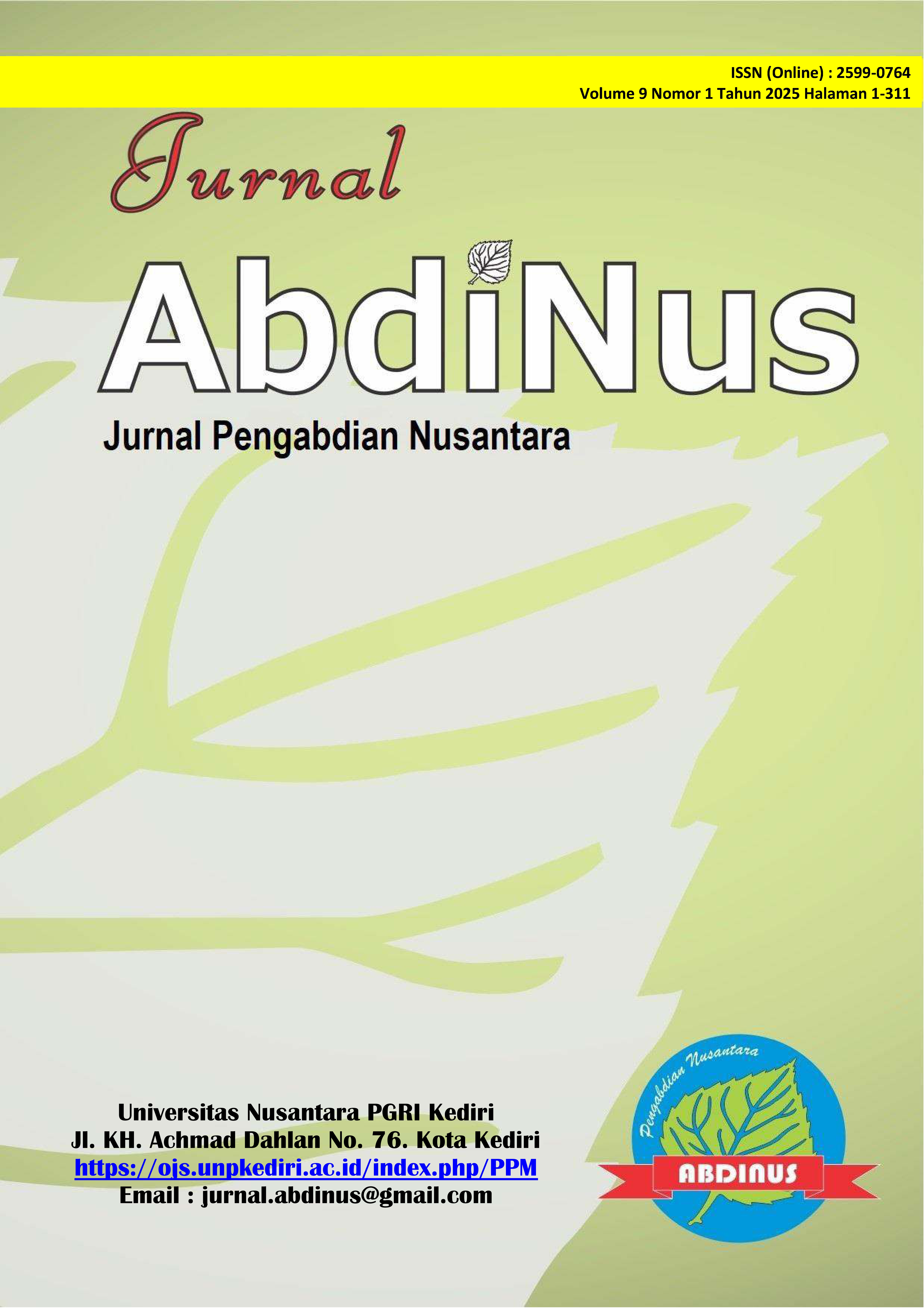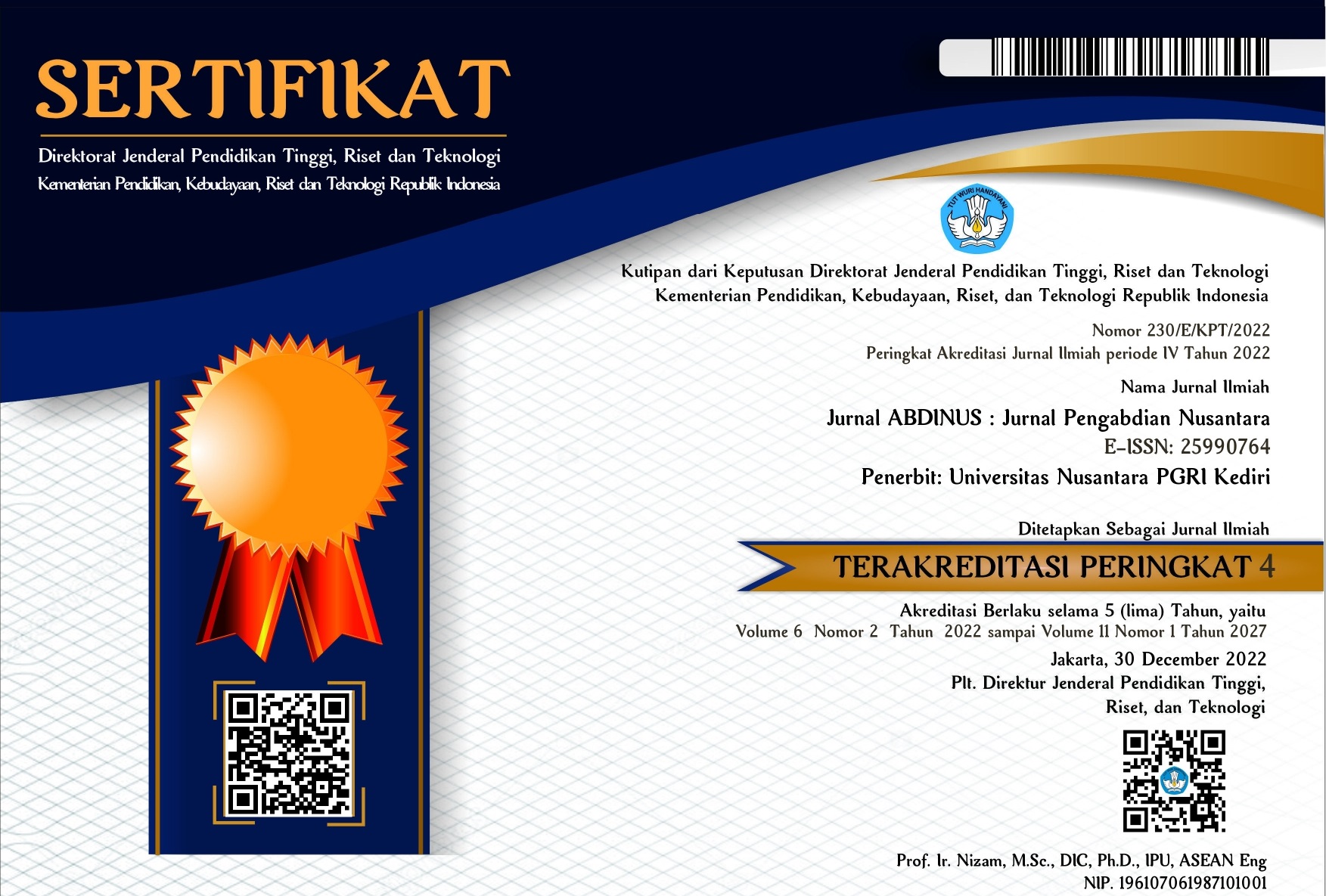Masterplan Kawasan Agrowisata Desa Talun Ponorogo
DOI:
https://doi.org/10.29407/ja.v9i1.21607Keywords:
Master plan, Agrotourism area, Talun villageAbstract
Ngebel Lake is one of the leading tourist destinations in Ponorogo Regency. Various annual events are held at Telaga Ngebel to attract local, domestic and international tourist visits. Ngebel Lake has an area of ±150 ha which is surrounded by Ngebel Village, Sahang Village, Wagir Lor Village, and Gondowido Village. Talun Village has an area of 16.72 km2 or around 27.42% of the entire area of Ngebel District. Talun Village has large potential natural resources and human resources, but has not been utilized optimally. Some of the superior potential of Talun village include the Widodaren waterfall, the Argokiloso hermitage site, Sedayu coffee plantations, village-owned plantation land and a forestry area of around 50 ha, opium coffee, 24 groups of goat and sheep breeders. This agrotourism area has the potential to complement the Telaga Ngebel tourist destination which is already well known to the wider community. This agrotourism area is expected to be able to encourage village economic growth which will lead to improving the welfare of the people of Talun village. The problem is that Talun village does not yet have a master plan for an agrotourism area as part of the gradual development process. Based on these problems, a master plan design for the Talun Village agrotourism area needs to be created.
Downloads
References
Anonim, (2019). RPJM Desa Talun tahun 2019-2024, Desa Talun Kecamata Ngebel Kabupaten Ponorogo
Astuti, M. T., & Noor, A. A. (2016). Daya Tarik Morotai Sebagai Destinasi Wisata Sejarah Dan Bahari. Jurnal Kepariwisataan Indonesia: Jurnal Penelitian Dan Pengembangan Kepariwisataan Indonesia, 11(1), 25–46. https://doi.org/10.47608/JKI.V11I12016.2546
Cooper, C., Fletcher, J., Gilbert, D., & Wanhill, S. (1993). Tourism: Principles and Practice. Pittman Pub. https://archive.org/details/tourismprinciple0000unse_s2g9/page/n 4/mode/1up?view=theater
Hadiwijoyo, S. S. (2012). Perencanaan Pariwisata Perdesaan Berbasis Masyarakat (Sebuah Pendekatan Konsep). Graha Ilmu.
Hijriati, E., & Mardiana, R. (2014). Community Based Ecotourism influence the condition of Ecology, Social, and Economic Batusuhunan village, Sukabumi. Sodality: Jurnal Sosiologi Pedesaan, 2(3). https://doi.org/10.22500/SODALITY.V2I3.9422
https://prodeskel.binapemdes.kemendagri.go.id/mpublik
https://sid.kemendesa.go.id https://ngadem.com/tempat-wisata-hits-di-ponorogo/
https://www.asliponorogo.com/2016/02/air-terjun-widodaren-sundan widodaren/
Mc Intosh R.W. & Goeldner, R.W. 1986, Tourism. Principles, Practises, Philosophies New York: John Wiley & Sons, Inc.
Muljadi, A. J. (2009). Kepariwisataan Dan Perjalanan. Rajawali Press.
Nawangsari, D., Muryani, C., & Utomowati, R. (2018). Pengembangan Wisata Pantai Desa Watu Karung Dan Desa Sendang Kabupaten Pacitan Tahun 2017. GeoEco, 4(1), 2460–0768. https://doi.org/10.20961/ge.v4i1.19172
Noor, M. F., & Zulfiani, D. (2021). IndIkator Pengembangan Desa Wisata Jilid I (1 ed.). Literasi Nusantara Abadi (Linus). www.penerbitlitnus.co.id
Pendit, Nyoman S. 1999. Ilmu Pariwisata Sebuah Pengantar Perdana. Jakarta: PT. Pradnya Paramita.
Peraturan Menteri Dalam Negeri No. 33 Tahun 2009, (2009). https://jdih.mkri.id/mg58ufsc89hrsg/Permen_No.33-2009(1).pdf
Pitana, I. G., & Diarta, I. K. S. (2009). Pengantar Ilmu Pariwisata. Andi.
Priono, Y. (2012). Pengembangan Kawasan Ekowisata Bukit Tangkiling Berbasis Masyarakat. JURNAL PERSPEKTIF ARSITEKTUR, 7(01), 51–67. https://doi.org/10.36873/jpa.v7i01.834
Sardiana, I. K., & Purnawan, N. L. R. (2015). Community-based Ecotourism in Tenganan Dauh Tukad: An Indigenous Conservation Perspective. Jurnal Kajian Bali, 5(2), 347–368. https://ojs.unud.ac.id/index.php/kajianbali/article/view/16780/0
Soekarya, T. (2011). Peningkatan Ekonomi Kerakyatan Melalui Pengembangan Desa Wisata. https://www.kemenparekraf.go.id/penelitian/PENINGKATAN-EKONOMI-KERAKYATAN-MELALUI-PENGEMBANGAN-DESA-WISATA
Tantowi, A., Barudin, Suryani, E., & Basuki, R. (2017). Neraca Satelit Pariwisata Nasional (NESPARNAS) 2017. Biro Pusat Statistik (BPS). https://www.bps.go.id/publication/2019/03/26/66604e9f077983c15b80e2bc/neracasatelit-pariwisata-nasional-nesparnas-2017-.html
The International Ecotourism Society. (2000). Ecotourism Statistical Fact Sheet, Nort Bennington, USA. http://www.active-tourism.com/factsEcotourism1.pdf
Undang-undang No. 10 Tahun 2019 Tentang Kepariwisataan, (2009). https://www.dpr.go.id/dokjdih/document/uu/UU_2009_10.pdf
Undang-undang No. 26 Tahun 2007. Tentang Penataan Ruang, Pub. L. No. UU No. 68 Tahun 2007 (2007). https://www.dpr.go.id/dokjdih/document/uu/UU_2007_26.pdf
United Nations Environment Programme, & United Nations World Tourism Organization. (2005). Making Tourism more Sustainable: A Guide for Policy Makers. UNEP and UNWTO. https://wedocs.unep.org/xmlui/handle/20.500.11822/8741
Wiwoho, dkk. 1990. Pariwisata Citra Dan Manfaatnya. Jakarta: PT. Binakara Pariwara
Yoeti, O. A. (1991). Pengantar Ilmu Pariwisata. Bandung: Penerbit Angkasa.















